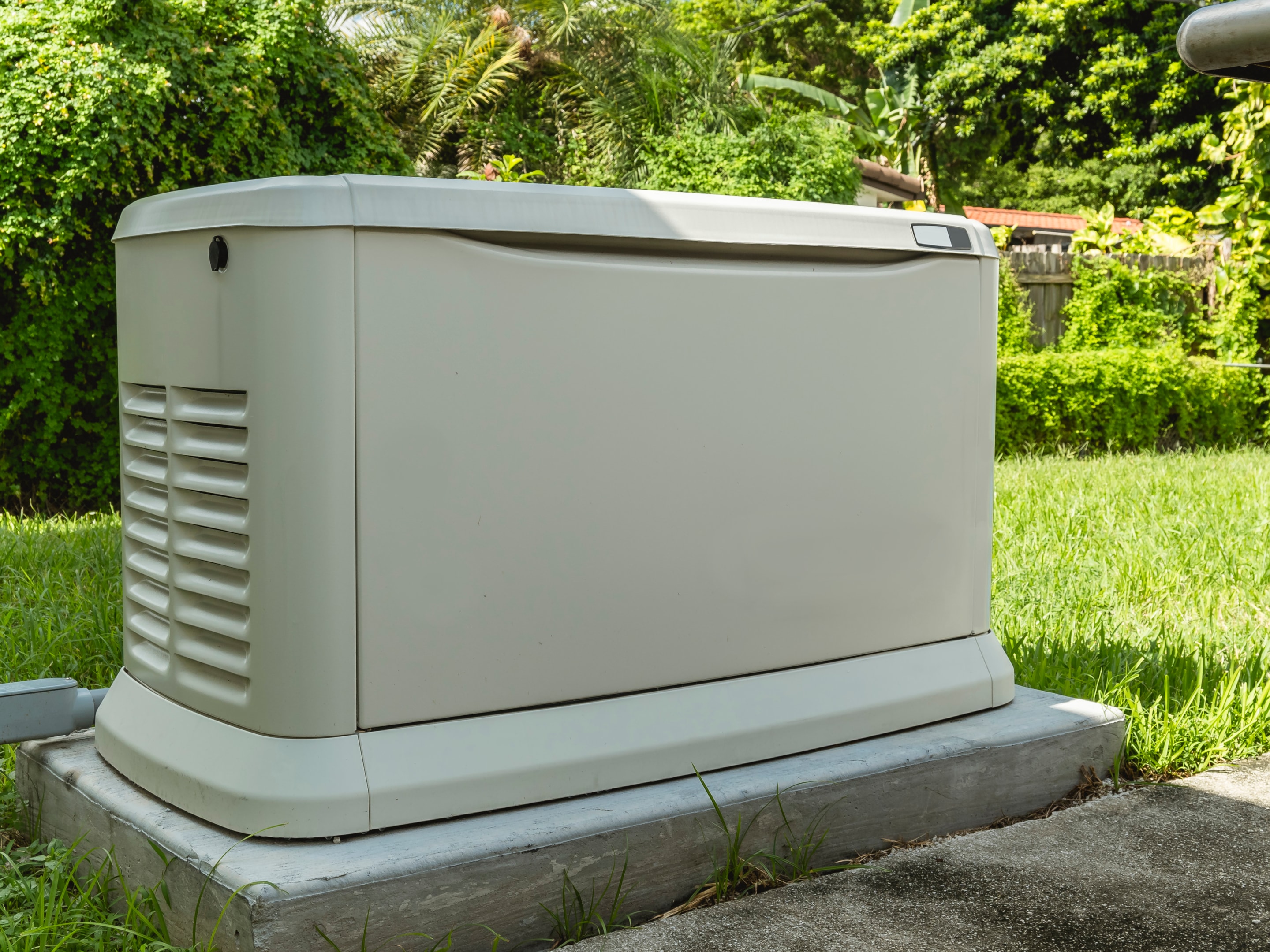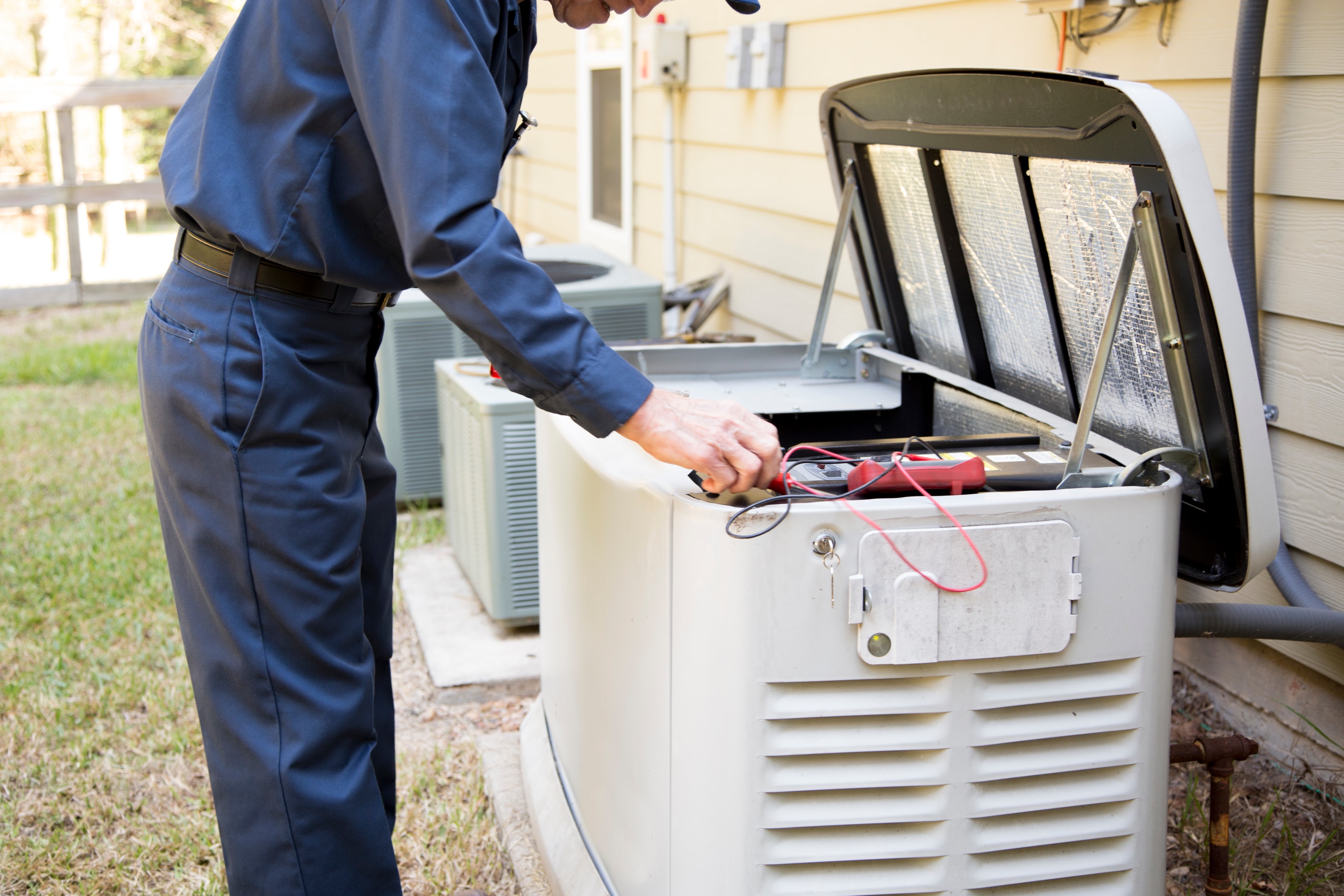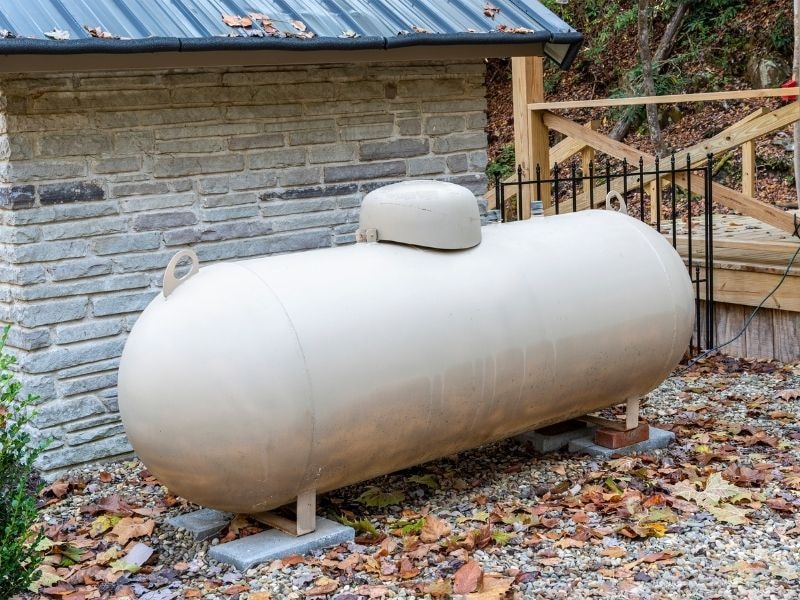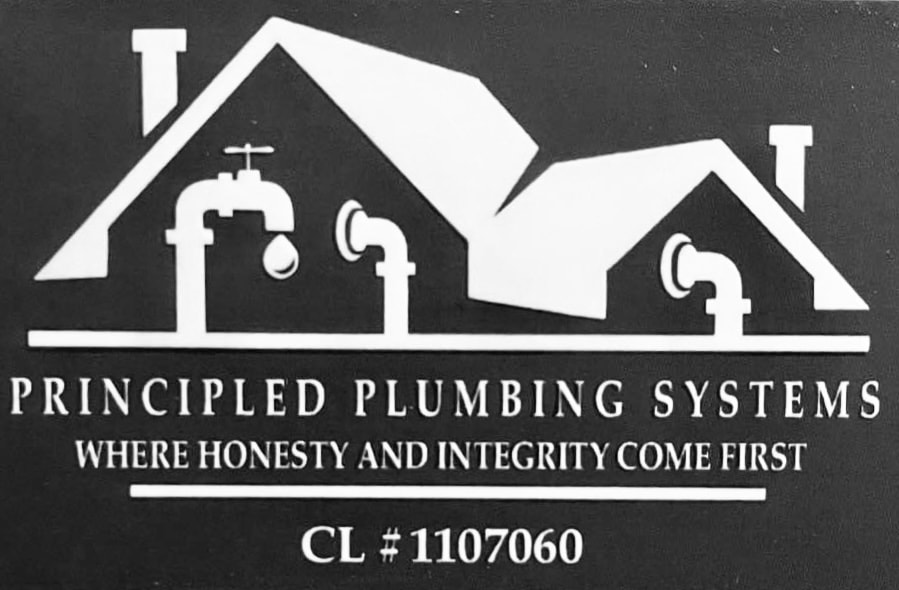Essential Guide to Gas Line Installation for Generator Efficiency
Introduction to Generator Efficiency
When the power goes out, your whole home generator becomes the hero that keeps your family comfortable and safe. But here’s the thing - even the best generator is useless without a properly installed gas line to fuel it.
Key benefits of proper gas line installation include:
• Reliable emergency power - Ensures your generator operates when you need it most during outages
• Enhanced home value - Professional installation adds substantial resale value to your property
• Peace of mind - Knowing your family’s comfort and safety are protected during emergencies
• Consistent performance - Proper fuel delivery prevents generator malfunctions and starting issues
Gas line installation isn’t something you want to leave to chance. It requires careful planning, inspection, and execution to ensure safety and efficiency. That’s why it’s crucial to work with a professional plumber who understands the complexities of pipe sizing, pressure requirements, and local building codes.
Before installation, review the following list of critical questions and considerations to ensure your natural gas system is ready for your generator. Be sure to thoroughly read the generator manual for safety instructions, setup procedures, and technical specifications before proceeding.

Understanding Fuel Requirements
Not all generator fuel is created equal, and understanding your options can make or break your backup power strategy. Your choice of fuel type will significantly impact both the installation process and how well your generator performs when you need it most.
Most homeowners face a choice between three main fuel types. Natural gas generators connect directly to your home’s existing gas supply, giving you unlimited runtime as long as the utility supply remains available. Propane generators use dedicated tanks with specialized regulators, offering independence from utility outages but requiring periodic refilling. LPG (liquefied petroleum gas) can also be considered as an alternative fuel source if natural gas is unavailable or insufficient.
Main fuel options include:
• Natural Gas Generators - Connect directly to your home’s existing gas supply for unlimited runtime
• Propane Generators - Use dedicated tanks with specialized regulators for reliable operation
• Gasoline Generators - Typically portable units requiring manual refueling during extended outages, making them less ideal for whole home applications due to constant refueling needs
Here’s what most people don’t realize: a dedicated gas line is often necessary to provide reliable fuel supply to your generator, especially in areas with high demand or limited fuel resources. You can’t just tap into any existing gas line and expect it to work properly. The load and volume of your generator must match the fuel line size and material, or you’ll end up with poor performance, frequent shutdowns, or even damage to the engine components.
Gas Meter Installation
Your gas meter might seem like a simple box, but it’s actually the control center for your entire generator fuel system. Get this part wrong, and nothing else matters - your generator simply won’t get the fuel it needs to operate reliably.
The location of your gas meter isn’t arbitrary. Local codes specify exact distances from windows, doors, and other structures for good reason - safety. The meter also needs to be accessible for utility workers while being properly sized to handle your generator’s fuel consumption needs. The gas meter serves as the connection point for the gas line running into the house, so it’s essential to assess the house’s piping capacity and infrastructure to ensure proper natural gas flow to the generator.
Key installation requirements:
• Safe location - Must meet minimum distance requirements from windows, doors, and structures
• Accessibility - Positioned for easy utility worker access for readings and maintenance
• Proper sizing - Meter capacity must match your generator’s fuel consumption needs
• Code compliance - Installation must meet all local building and safety codes
Only licensed professionals should handle gas meter installation. They have the expertise to properly size, install, and test meters according to local codes and manufacturer specifications.
Fuel Line Materials
Choosing the right fuel line material isn’t just about what’s cheapest or easiest to install - it’s about what will keep your family safe and your generator running for years to come. The wrong material choice can lead to leaks, corrosion, or system failure when you need backup power most.
Your fuel line material needs to be compatible with your specific fuel type and generator requirements. Natural gas and propane have different chemical properties that can affect certain materials over time, making proper selection essential for preventing dangerous leaks and costly system failures. Proper pipe sizing and material selection are also crucial for any other appliance connected to the gas supply, ensuring safe and efficient operation for all appliances and the generator.
Common fuel line materials include:
• Copper tubing - Excellent corrosion resistance, easy to work with, ideal for above-ground installations
• Steel pipe - Superior strength and durability, preferred for underground and high-pressure applications
• Flexible tubing - Convenient for tight spaces and connections, requires proper support and protection
• CSST (Corrugated Stainless Steel Tubing) - Lightweight, flexible, increasingly popular for residential installations
Here’s the bottom line: using high-quality fuel line materials isn’t optional if you want to prevent leaks, damage, or safety hazards. A professional plumber can help you choose the best materials for your specific situation while ensuring compliance with local regulations and safety standards.

Safety Considerations
Let’s be clear about something: gas line installation is not a DIY project. We’re talking about working with pressurized gas systems that can cause explosions, fires, and fatal carbon monoxide poisoning if installed incorrectly. The risks are real, and the consequences can be devastating.
Professional gas line installation requires specialized knowledge, proper equipment, and strict adherence to safety protocols that protect your family and property. Licensed technicians understand how to detect gas leaks, ensure proper ventilation, establish emergency shut-off procedures, and coordinate with local utilities and building departments. Homeowners should also refer to the safety section of their generator manual for detailed emergency procedures and guidance.
Critical safety considerations include:
• Gas leaks - Can lead to explosions, fires, and health hazards
• Carbon monoxide poisoning - Improper installation or ventilation creates deadly risks
• Professional installation - Licensed technicians have proper training and equipment
• Emergency procedures - Establish shut-off procedures and emergency contact information for utility companies or service providers
Only licensed professionals should handle gas line installation and testing. They have the training, tools, and experience necessary to identify potential hazards, ensure code compliance, and perform proper commissioning of the system.
Environmental Benefits
Choosing an underground gas line for your generator isn’t just a smart move for your home—it’s a win for the environment as well. By opting for natural gas or propane as your generator’s fuel source, you’re significantly reducing your home’s carbon footprint compared to traditional gasoline-powered generators. Natural gas and propane generators emit fewer greenhouse gases and air pollutants, making them a cleaner choice for emergency power.
A dedicated gas line ensures a steady, reliable supply of fuel, which means you won’t need to worry about frequent refueling or the risk of gasoline spills that can harm the environment. This setup not only keeps your generator running smoothly during outages but also helps protect the environment by minimizing fuel handling and reducing emissions. When you install a natural gas or propane generator with an underground gas line, you’re choosing a solution that delivers reliable power while supporting a cleaner, greener future for your community.

Cost-Effectiveness and Best Practices
Investing in an underground generator gas line is a smart, cost-effective decision for homeowners looking to maximize both savings and reliability. By installing a dedicated gas line specifically sized for your generator, you eliminate the hassle and expense of manual refueling common with gasoline-powered units.
A properly sized gas line ensures that your generator receives the right volume and pressure of fuel at all times. This efficient operation means your generator works optimally, reducing wear and tear and extending its operational life. With a reliable gas supply, your generator can run for longer periods during outages, providing extended protection and peace of mind. It's also important to ensure your gas line has enough capacity to handle a lot of power demand from your generator, which helps maintain safe and efficient operation. Natural gas and propane are often more economical choices than gasoline, especially for larger generators that need to run for extended periods.
To ensure your system delivers safe, reliable power for years, following industry best practices is essential. Start by partnering with a qualified plumber who understands local codes and regulations. Always opt for a dedicated gas line for your generator rather than tapping into an existing line to maintain consistent pressure and avoid interference with other appliances.
Installation Challenges
Installing an underground gas line for your generator is a project that demands careful planning and expertise. One of the first hurdles is determining the correct pipe size and material to ensure your generator receives the right amount of fuel at the proper pressure. The gas line must be designed to handle the specific load of your generator, taking into account the distance from the gas meter and any other appliances connected to the system.
The installation process itself involves excavating a trench, laying the pipe, and making secure connections to both the generator and the gas meter. Factors like soil type, terrain, and local building codes can all impact how the line is installed and how long the process takes. Because of these complexities, it’s essential to work with a qualified plumber who understands the details of gas line installation and can ensure everything is done safely and up to code. By addressing these challenges with professional help, you’ll have peace of mind knowing your generator’s gas line is installed correctly and ready to deliver reliable power when you need it most.
Common Mistakes to Avoid
The biggest mistake homeowners make with generator gas line installation? Thinking they can handle it themselves or hiring the cheapest contractor they can find. Both approaches often lead to dangerous installations that put families at risk and generators that fail when needed most.
Improper pipe sizing is probably the most common technical mistake in gas line installation. Get the sizing wrong, and you’ll either starve your generator of fuel (undersized pipes) or waste money on materials while potentially violating local codes (oversized pipes).
Common mistakes to avoid:
• Improper pipe sizing - Undersized pipes restrict fuel flow, resulting in reduced generator performance, while oversized pipes waste materials
• Low-quality materials - Cheap components lead to premature failures and safety hazards
• DIY installation - Gas line work requires professional expertise and licensing
• Skipping permits - Unpermitted work creates legal and insurance liability issues
To avoid these mistakes, always consult gas line sizing charts to select the correct pipe size and ensure proper fuel delivery and generator performance.
Don’t neglect regular maintenance and inspection once your system is installed. Regular professional inspections can identify potential problems before they become serious safety hazards or expensive repairs.
Troubleshooting Common Issues
Even with a professionally installed underground gas line, occasional issues can arise that affect your generator’s performance. One of the most common problems is inadequate fuel flow, which can prevent your generator from starting or running efficiently. This may be caused by an incorrectly sized pipe, blockages in the gas line, or a malfunctioning gas meter. If you notice your generator struggling to start or maintain power, it’s important to inspect the gas line for leaks, check the pipe size and material, and ensure the gas meter is operating as it should.
Another frequent issue is a drop in gas pressure, which can result from leaks or an undersized line. Using a pressure gauge to monitor the gas line pressure can help you identify and address these problems early. Regular inspections and maintenance are key to catching potential issues before they become major concerns. By staying proactive and working with a professional to inspect your gas line, meter, and generator, you can ensure your emergency power system remains reliable and efficient for years to come.
System Maintenance
Ongoing maintenance is essential for keeping your generator gas line operating safely and efficiently year after year. Schedule annual inspections with a qualified plumber to check for signs of wear, corrosion, or damage to the gas line and meter. During these inspections, gas pressure should be checked using measurements such as inches of water column to ensure proper system operation. These inspections help identify potential issues before they become major problems.
Keep the area around your generator and gas line clear of debris, landscaping, or other obstructions that could interfere with access or ventilation. Document every maintenance visit, noting the date and details of work performed. This record-keeping helps track the health of your system and provides valuable information for future inspections or repairs.
Frequently Asked Questions
Do I need a separate gas line for my generator? Yes, most whole home generators require a dedicated gas line to ensure adequate fuel supply and prevent interference with your home’s other gas appliances. A dedicated line provides consistent pressure and volume specifically sized for your generator’s requirements.
What size gas line do I need for a 22kW Generac generator? A 22kW Generac generator typically requires a 1-inch gas line for natural gas installations, though the exact size depends on the line length, number of fittings, and local gas pressure. A professional plumber should calculate the proper sizing based on your specific installation requirements. Always consult a gas line sizing chart to ensure the correct pipe size for your generator and installation conditions.
How long will a generator run on natural gas? Natural gas generators can run indefinitely as long as your utility supply remains available. This unlimited runtime is one of the key advantages of natural gas over propane tanks or gasoline, which require refueling or tank replacement during extended outages.
Can I install a gas line for my generator myself? No, gas line installation should only be performed by licensed professionals. Working with gas lines requires specialized knowledge, proper permits, pressure testing equipment, and compliance with local codes. DIY installation can create serious safety hazards and legal liability. Each step of the installation process should be handled by a licensed professional to ensure safety and code compliance.
What’s the difference between natural gas and propane for generators? Natural gas connects directly to your utility supply for unlimited runtime, while propane uses dedicated tanks that require periodic refilling. Natural gas typically offers lower operating costs, while propane provides independence from utility outages but requires fuel management.
Where is the best place to install the underground gas line for a generator? The best place to install the underground gas line is along a route that minimizes bends and obstacles, maintains safe distances from other utilities, and allows for easy access to both the generator and the gas meter. Proper placement is essential for safety, code compliance, and reliable operation.
Are permits or inspections required for generator gas line installation? Yes, most cities and towns require permits and inspections for installing or upgrading gas lines to generators. Local town regulations may also dictate pipe sizing, approved materials, and inspection procedures. Always check with your town or local utility before starting installation to ensure compliance and avoid delays.

Ready for Professional Generator Gas Line Installation?
Don’t let the next power outage leave your family in the dark.
When you need a generator gas line installed right, Principled Plumbing has your back. Our licensed team knows exactly what it takes to get your whole home generator up and running safely - so you can have peace of mind when the lights go out. We proudly offer expert generator gas line installation services throughout Grass Valley, Nevada City, Alta Sierra, Penn Valley, and sourounding areas; ensuring local homeowners have a trusted partner for safety and reliability.
Here’s what you get with us: • Licensed and insured professionals who know the code inside and out • We handle all the permits and paperwork (no headaches for you!) • Honest, upfront pricing with free estimates • Quality work that’s backed by our warranty
Ready to protect your home?
Give Principled Plumbing a call today and let’s schedule your free estimate.
Because when the power goes out, you’ll be glad you planned ahead.